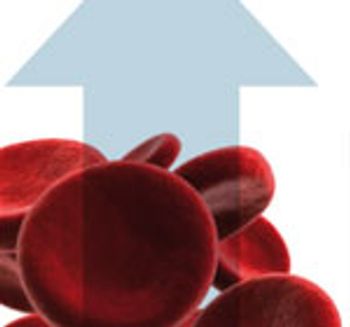
CURE interviewed Thomas Prebet to gain insight into the importance of supportive care in myelodysplastic syndrome.

CURE interviewed Thomas Prebet to gain insight into the importance of supportive care in myelodysplastic syndrome.

Just as electronic health records revolutionized the healthcare industry for nurses and doctors, patient portals are giving patients new ways to access their healthcare information and communicate with members of their healthcare team.

A recent study enrolled 1,589 black women and 1,256 white women who underwent screening mammography at the University of Pennsylvania from 2010 to 2011.

A new study has shown that vaccinating adolescent boys may be cost-effective for preventing oropharyngeal cancer, a disease that's projected to become the most common HPV-related cancer by 2020.

A new telephone-based intervention for breast cancer survivors is showing promise, and it involves them becoming more actively engaged in goal setting and problem solving with an eye toward accelerating their recovery by engaging in health-promoting activities such as exercise, stress management and healthy eating.

Breast cancer patients with diabetes were significantly more likely to be diagnosed with advanced-stage breast cancer than those without diabetes.

A new study has found that patients with lower vitamin D levels prior to treatment for follicular lymphoma are more likely to die or relapse from the disease earlier than patients with adequate vitamin D levels in their blood.

Many women who are diagnosed with breast cancer are concerned about the genetic risk of developing other cancers themselves or of a loved one developing cancer. However, a large amount of those concerns are not being addressed, according to a new study.

A new study has found that although the number of childhood cancer survivors is increasing, the majority of those to survive five or more years beyond diagnosis have at least one chronic health condition.

The Food and Drug Administration (FDA) has approved Jadenu (deferasirox) for the treatment of chronic iron overload, a condition that can affect patients with myelodysplastic syndromes (MDS), sickle cell disease and thalassemia.

A new study has found that a psychosocial telephone counseling intervention helps improve mood and quality of life in cervical cancer survivors.

Recent advancements in the treatment of ovarian cancer, including surgical techniques, the approvals of Avastin and Lynparza, and intraperitoneal chemotherapy, have led the National Comprehensive Cancer Network to make changes to their clinical practice guidelines in its 20th annual edition.

Results of a follow up study have shown that when women were taught stress management techniques early in their breast cancer treatment, their mood and quality of life continued to improve up to 15 years later.

A new study hopes to gain some clarity on what causes some breast cancer patients to feel "foggy" when receiving chemotherapy.

Results of a new study may help more lung cancer patients be eligible to participate in clinical trials.Researchers found that previously having cancer does not impact clinical outcomes in lung cancer patients.

A new study has shown that men with a history of testicular cancer have a higher incidence of developing prostate cancer, including intermediate or high-risk prostate cancer, compared with those without a history of testicular cancer.

Two new studies highlight the need for cancer survivors and their families to get guidance on healthy lifestyle changes and when the best time might be to integrate them.

There's help for electrolyte imbalances caused by cancer and its therapies.

Thanks to The Cancer Genome Atlas (TCGA) Research Network, researchers now have a better understanding of genomic alternations in head and neck cancers.

Issues of fertility, body image and sexuality are all important when treating a young adult with cancer, yet many facilities lack proper utilities and training to assist this group of patients, which is why Anne Katz wrote the book, "This Should Not Be Happening: Young Adults with Cancer."

During President Barack Obama's State of the Union Address, he announced a nationwide Precision Medicine Initiative that would help cure diseases such as cancer and diabetes.

A new study has found that while the breast cancer prevention drug tamoxifen's benefits outweigh its risks, the drug isn't right for all women.

When motivating people to get screened for cancer, fear may not be the best way to do it.

Two recent studies outline the importance of nutrition in preventing obesity-related cancers, as well as the potential benefits of a nutrition education intervention in preventing breast cancer recurrence.

Results of a phase 2 study showed that women with small, stage 1 HER2-positive breast cancer who received a combination of lower-intensity chemotherapy and Herceptin following surgery were highly unlikely to have a recurrence.

Preliminary data from a phase 2 trial demonstrates that a combination of the PARP inhibitor veliparib and chemotherapy benefits patients with squamous cell non-small cell lung cancer.

Published: October 27th 2014 | Updated:

Published: January 10th 2015 | Updated:

Published: January 23rd 2015 | Updated:

Published: January 29th 2015 | Updated:

Published: January 30th 2015 | Updated:

Published: January 31st 2015 | Updated: